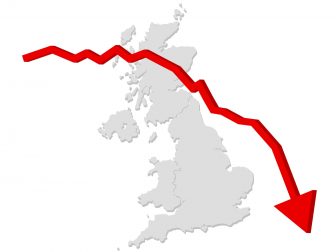 Confidence in the UK’s housing market is beginning to ebb despite a markedly improving outlook over the last few months, the latest residential market survey from the Royal Institution of Chartered Surveyors (RICS) reveals.
Confidence in the UK’s housing market is beginning to ebb despite a markedly improving outlook over the last few months, the latest residential market survey from the Royal Institution of Chartered Surveyors (RICS) reveals.
There remains a huge mismatch in the private rented sector (PRS), with demand continuing to significantly outstrip supply, leaving renters tackling ever-rising living costs and plummeting affordability levels.
The research also reveals that the UK’s lettings market is facing growing challenges, and RICS says it will be interesting to see how the political parties address this.
Tenant demand rose notably to +35% (net balance), up from +10% in May. Meanwhile, new landlord instructions, which are landlords in the market offering property for rent, were flat. The growing gap between supply and demand for lettings indicates that rental prices will continue to rise for the foreseeable future, albeit at a slower pace than previously.
As confidence regarding an imminent cut in interest rates has ebbed, and the cost of living crisis continues to bites, there has been a small drop in new buyer demand in the sales market, with a -8% (net balance) result recorded nationally compared to the flat picture reported in April. This latest figure is the lowest reading for new buyers since November 2023. Buyer demand was weakest in the South East and South West of England.
Respondents to the survey also reported a fall in the number of sales agreed during May, although, it is expected that sales volumes will rise modestly over the coming three months. Moreover, the outlook for twelve months ahead remains relatively upbeat, with +43% of survey participants anticipating an uplift in sales activity, rising from +33% in April.
House prices continued to retreat nationally, posting a -17% result compared to -7% in April. Consequently, having been steady in both March and April, the latest data suggests that house prices fell slightly in May. Regionally, Scotland and Northern Ireland saw house prices continue their upward trajectory.
RICS chief executive, Justin Young, commented: “Despite an improving overall outlook, today’s data reveals that confidence in the housing market is beginning to dip – just as parties launch their manifestos.
“While both the Conservatives and Labour have staked their claims as being the party of home ownership, for that to be the case, greater attention must be paid to improving conditions for Generation Rent, who are faced with rising rents and a lack of suitable options. This particular demographic – typically made up of people aged between 18 and 40 – has doubled in the last two decades, so politicians need to focus on them, as well as homeowners, as a means of gaining the support of a growing portion of the electorate.
“The housing market needs policies that think longer term, not short, and awareness that the different tenures are interlinked, so there is no one solution that will fix the situation. With the market under strain, the supply and demand gap in both lettings and buy side continues to create issues.
“With higher interest rates continuing to hamper first-time buyers, politicians are looking to win support from this group of buyers –as the Conservatives have done with Help to Buy 2.0 and Labour with the Freedom to Buy promise.
““Many millions of voters are feeling both cost of living, and market impacts; the political parties see this and are trying to entice the electorate with proposals in their manifestos this week.”
Tarrant Parsons, RICS senior economist, added: “The recent recovery across the UK housing market appears to have slipped into reverse of late, with buyer demand losing momentum slightly on the back of the upward moves seen in mortgage rates over the past couple of months.
“Nevertheless, expectations point to this delaying, rather than derailing, a modest improvement going forward. Indeed, respondents continue to envisage a more positive trend in sales activity coming through over the year ahead, although this is likely predicated on the Bank of England being able to start lowering interest rates in the coming months.”


On the letting side The Royal Institution of Chartered Surveyors said last Thursday that its measure of tenant demand more than tripled to 35 in May from 10 in April. At the same time, new landlord instructions, which indicate landlords putting properties up for rent, were flat.
The professional body’s monthly survey measures the difference between the percentage of UK surveyors registering rises and falls in rental demand and instruction.
The growing gap between supply and demand for lettings meant “rental prices will continue to rise for the foreseeable future, albeit at a slower pace than previously”, Rics said. “The UK’s lettings market is facing growing challenges, and it will be interesting to see how the political parties address this.”
You must be logged in to like or dislike this comments.
Click to login
Don't have an account? Click here to register
They can’t address it other than to introduce a change to the first past the post voting system that guarantees housing policy and direction changes every 5 years.
DHLUC were given £3 million in the last budget to help sort out the house buying and selling process, its very unlikely the projects working on improving the way things are done and communication between stakeholders will see any of that funding and will be left to their own devices to see projects through.
Until housing is freed up from the uncertainty of party politics the civil service will be on a never ending cycle of aborted initiatives not knowing whether they’re coming, going or just stood still
You must be logged in to like or dislike this comments.
Click to login
Don't have an account? Click here to register